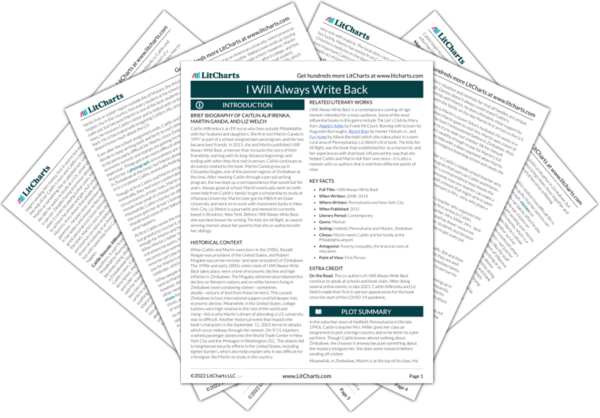The cul-de-sac further represents the way that Caitlin is isolated in her small community. Her mom’s mention of colonialism is important, since much of modern Zimbabwean history has been influenced by the country’s past as a colony. Back when the country was called Rhodesia, the British ruled (often violently), and they stripped the country of natural resources. Though Rhodesia eventually became the independent country of Zimbabwe, much of the economic and political turmoil in the country in its early days as an independent country was arguably a direct consequence of the prior period of British colonialism.
